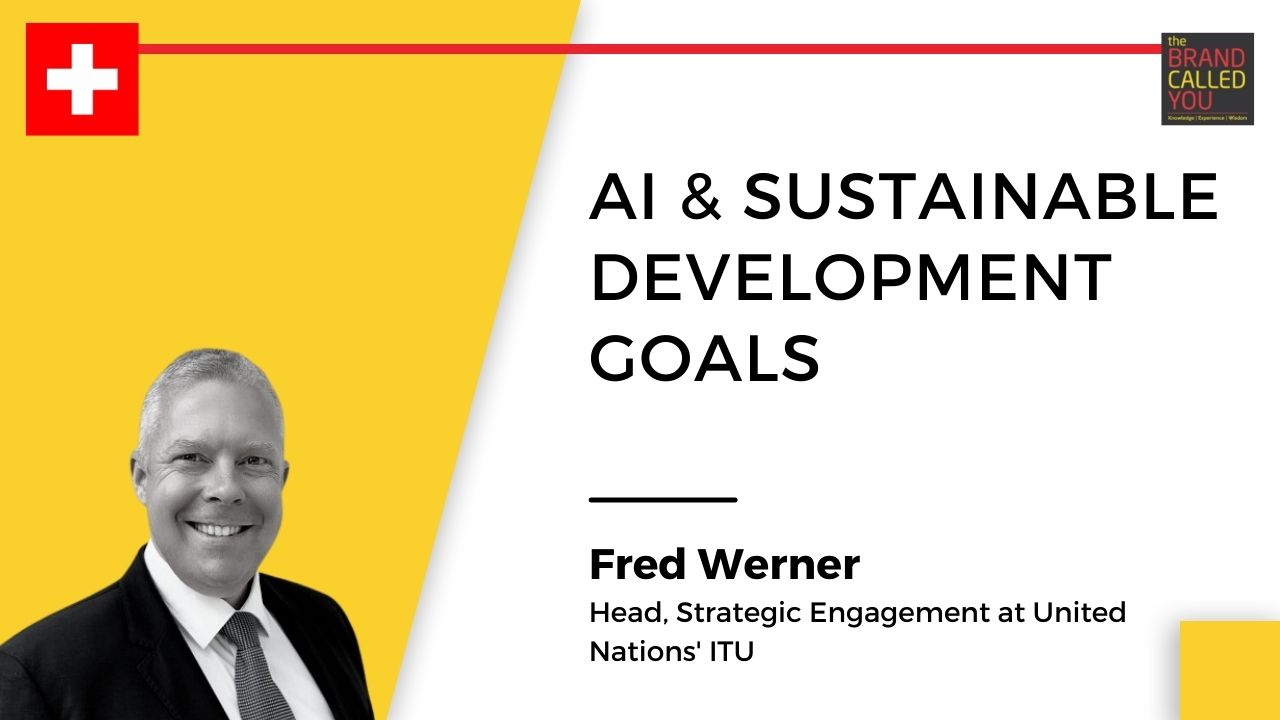Fred Werner, Head, Strategic Engagement at United Nations’ ITU
Fred Werner is the Head of Strategic Engagement at the United Nations ITU. He is also the executive producer of AI for Good Global Summit.
Podcast
Overview
With our lives depending more and more on technology, AI has pushed the boundaries, simulating human reasoning in AI systems. It has raised the efforts of human resources, going against the fear that it might make them obsolete.
But, how can AI be used for the larger goof of humankind instead of just focusing on business interests? Today, we discuss the same on how a UN Summit, AI for Good, works to collaborate to leverage AI to achieve sustainable development goals.
About Fred Werner
Fred Werner is the Head of Strategic Engagement at the United Nations ITU. He is also the executive producer of AI for Good Global Summit. He talks in detail about leveraging AI to achieve the Sustainable Development Goals.
Discussion
Fred explains the meaning of ITU, which is the United Nations Specialised agency for information and communication technology. He talks about the organisation’s three key activities:
- Allocate and harmonise radio spectrum
- Develop International Standards on Telecommunications and information communication technologies
- Capacity Building by helping developing countries.
He explains it is the only UN agency with a public and private membership model. He further talks about his motivation to join ITU and his journey for the same.
AI for Good
Fred talks about AI for Good, which was an attempt to leverage AI to achieve several Sustainable Development Goals. He explains the various positive applications of AI by elaborating on several use cases in the context of SDGs.
He lays down several challenges as well, like deciding what is good, equal good for both men and women, and benefits for developing countries.
Furthermore, he explains, “While developing applications., we have to view them with the lens of sustainable development goals and that it benefits all equally.”
He explains the mechanism of working, by connecting AI innovators with problem owners to create a common framework of understanding.
Participation
Fred also talks about the sense of urgency in developing applications that enable achieving the SDGs. He also shares the organisational structure and support of other agencies.
AI for Good used to be a physical summit before COVID and has now become virtual on a neural network, which is an online match-making networking community platform.
He further explains, “You might have data and I might need data. You might have open algorithms and I might need algorithms.” This matchmaking function has enabled people to collaborate and connect with the summit.
More About Fred
Fred talks about experiences he had as a kid and the impact that travel had on him. He got the experience of being not just in different countries, but also have the experience of events like the Cold War.
Fred talks about the benefits of spending time on building relationships, helping others and accepting help, and being more interconnected. He ends by saying, “If you let go of things, you would get more of it in the end and going from independent to interdependence and being people-oriented instead of being outcome-oriented.”
Profile
I have always been inspired by the transformational power of information communication technologies and AI to do better business, improve society, and help solve global challenges.
As one of the creators of the landmark United Nations AI for Good Global Summit, my mission is to connect AI innovators with problem owners to help advance the United Nations Sustainable Development Goals.
Now living in Switzerland, I head up the Strategic Engagement Division for ITU’s Standardization Bureau, generating new opportunities for its 900+ private companies, 193 member states and 150+ universities to help drive international standards’ development, forge new partnerships and attract new communities to ITU.


